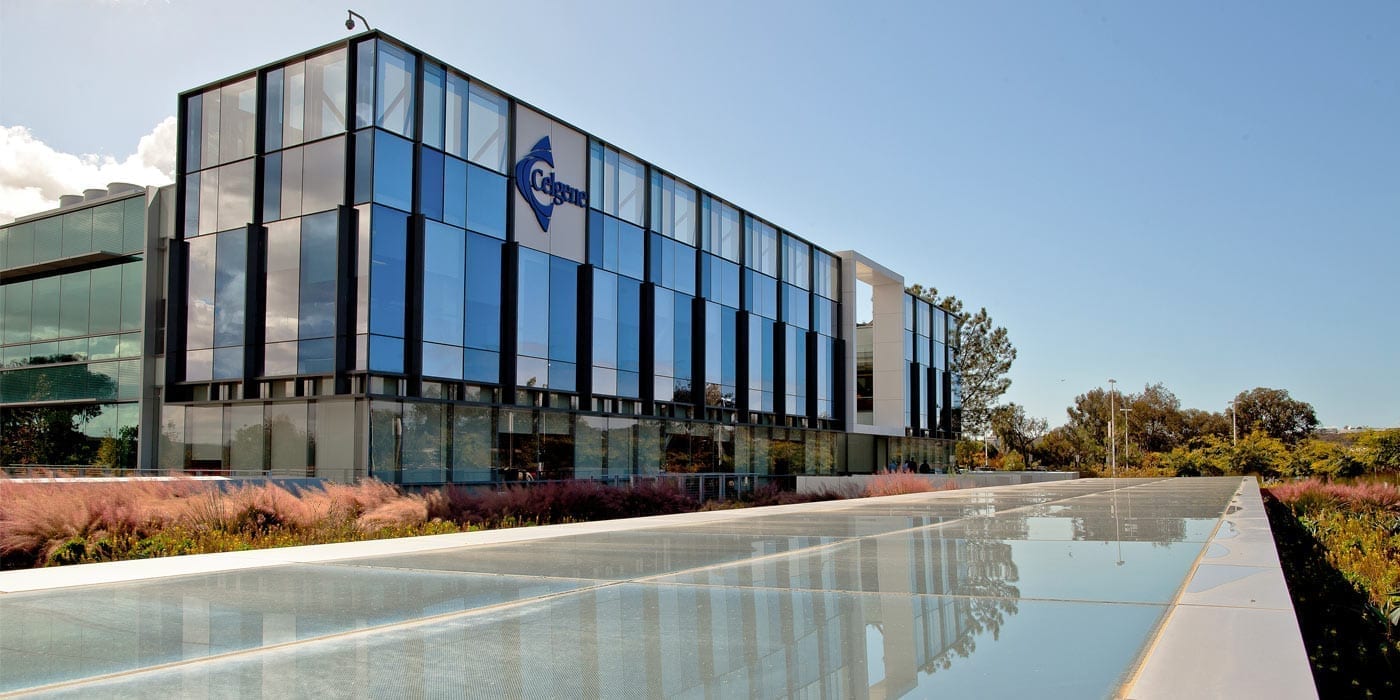7/15/2015
Biotech manufacturer Celgene is making an earnest push to become one of the industry’s leaders following a wave of transactions aimed at increasing long-term sustainability. Celgene’s current success is largely based on the popularity of its breakthrough cancer drug, Revlimid; however Celgene is attempting to set itself up for future growth when Revlimid’s patent protection expires. The company announced on Tuesday evening that it is acquiring drug maker, Receptos, which is in the late stages of developing a new groundbreaking autoimmune disease-fighting drug, ozanimod. In the deal, Celgene will pay $232 per share, which is a 12 percent premium on Receptos’s Tuesday market closing price, equaling to a $7.2 billion cash transaction. Ozanimod could be approved by the Food and Drug Administration (FDA) for treatment of multiple sclerosis by 2018, and for ulcerative colitis by 2019.

Photo courtesy of Celgene.com
The acquisition follows last month’s announcement that New Jersey-based Celgene will spend $1 billion dollars in a collaborative effort with one of the top cancer drugmakers, Juno Therapeutics. Celgene paid a near-100 percent premium on 9.1 million shares, a deal in which some analysts criticize Celgene for overpaying. The collaborative effort may be a necessity in what has become an increasingly heated cancer-drug arms race involving technology that can genetically engineer patients’ immune system cells to recognize and attack cancerous tumors. The collaboration should help Juno remain competitive with Swiss drug giant, Novartis, as well as other pharmaceutical leaders in cancer drug development. Celgene has also entered collaborative agreements with Agios Pharmaceuticals, in its development of leukemia-fighting medications, as well AstraZeneca, helping to develop additional immunity-enhancing drugs.
San Diego-based Receptos was founded in 2009 and launched a wildly successful IPO in 2013. Ozanimod can be taken orally to treat ulcerative colitis, unlike the current market-leading drugs, AbbVie’s Humira and Johnson & Johnson’s Remicade. Although Novartis has a similar pill-form medication to treat multiple sclerosis,Gilenya, Celgene representatives believe that Ozanimod is safer, as the former drug has been linked to cardiac-related side effects. In an interview with Fierce Biotech, Celgene CEO Bob Hugin said, “We have followed this asset for several years. Now is the time that we have such an incredible opportunity.” Celgene analysts believe that the drug could generate peak sales of $4 and $6 billion annually beginning in 2018, running through 2032. Ozanimod may also prove useful in treating Crohn’s disease, psoriasis and atopic dermatitis as well. Last year, the company made a $710 million initial payment to a virtually unknown Dublin-based company, Nogra Pharma, to acquire the rights to GED-0301, a drug under development for Crohn’s disease. The transaction was shocking to many, but if the drug’s development is successful, it will add to Celgene’s push to become a market leader in treating these types of ailments.
Hugin touted the transactions on a recent conference call, saying “We have been fortunate to have been able to act on several major transactions that position us for sustained and enhanced long-term growth.” Hugin indicated that the wave of transactions may not be finished either, saying that the company is still looking for other developmental drugs that could be “disruptive and transformative” to the industry. Biotech analyst Geoffrey Porges said about the company’s aggressiveness, “Celgene’s management are to be congratulated on the audacity of their deal-making, but we expect investors to bridle at the company’s increasingly aggressive front-end loading of their transactions.” The company expects the deals to stifle earnings in 2016 and 2017, and remain neutral in 2018, however, Hugin and analysts both expect the Receptos deal to significantly impact the company’s profit margin starting in 2019 and beyond.
Sources:
Fierce Biotech – John Carroll
New York Times – Andrew Pollack
Reuters – Bill Berkrot


Join the conversation!